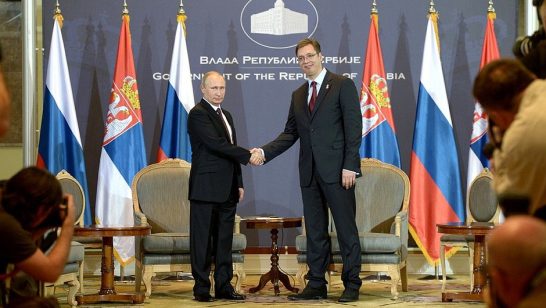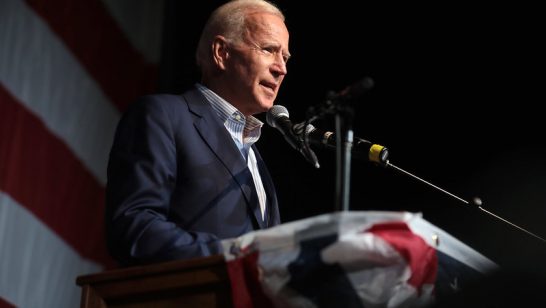
Europe was not prepared for the wars in the Western Balkans in the 1990s. The international response was mainly led by the United States, NATO and the UN. It was not until the early 2000s that the European Union took the leading role in efforts to stabilise the region.
EU and NATO’s role for the security of the Western Balkans
Since then, the EU has tackled the question of security and defence in the region with a comprehensive approach. Beyond the political perspective of EU accession, its contribution has included operation Althea, which continues with NATO in Bosnia and Herzegovina, and its largest mission, EULEX, in Kosovo, providing support and training for the police in the country. Security and defence questions are part of the accession negotiations. The ‘Berlin Process’ has focused on securing borders to manage refugee flows and combat organised crime. The formal EU accession talks cover the integration into foreign security and defence policy in Chapter 31 of the EU’s acquis.
The role of NATO in the Western Balkans has evolved considerably since its operations against the Milosevic regime in the 1990s and those in Macedonia in 2001. Albania, Croatia, Slovenia and now also Montenegro, have become NATO members, while other countries in the region, including Serbia, are part of the Partnership for Peace programme. NATO is now seen as a partner and a source for capacity building for governments throughout the Western Balkans. At the same time, NATO troops, still stationed in Bosnia and Herzegovina and Kosovo, as one of our contributors argues, are perceived as a guarantors against possible aggression from neighbours, and, as such, a limitation on armament aspirations.
Who should provide security in the Western Balkans?
The main security concerns in the Western Balkans are no longer just about potential escalation among states in the region. Instead, the region is tied into the wider security challenges faced by Europe today. Its geographical position, surrounded by EU and NATO members, ties the region inevitably into many of their concerns, including border security, forced migration, anti-terrorism and Russian influence. However, despite many years of international presence therein, there is no integrated regional security partnership. Security provision for the region is, currently, a patchwork of different international institutions, mainly NATO, EU, OSCE, and the terms of various national agreements.
With the region in a continued state of limbo about EU accession, many have argued, including contributors to this website, that Europe needs to engage and ‘do more’. What should this mean for security?
Don’t get caught in a ‘New Cold War’ narrative
NATO’s presence is often politicised in a ‘new Cold War’ narrative, which is particularly supported by pro-Russian political forces. Increased meddling by Russia in different Western Balkans states, and Serbian plans to acquire Russian fighter jets, have been discussed extensively lately. However, although Russian influence cannot be considered a real alternative for the region, it is, nevertheless, a significant de-stabilising factor. Both the EU and NATO should avoid becoming entangled in a political narrative of the West versus Russia.
Support a regional security community
Instead, the EU and NATO should focus on establishing an inclusive, comprehensive security perspective for the region. Such cooperation needs to be led and implemented by the states in the Western Balkans, with the EU and NATO enhancing their capacity. In the long-term, such close collaboration would also provide a strong basis for cooperation after all the states in the region have joined the EU.
Hybrid threats have become a key area in which NATO and the EU collaborate and, in the context of the Western Balkans, this is an increased priority. In the EU-NATO Joint Declaration in 2016, Bosnia and Herzegovina was identified as one of the possible countries in which to start closer cooperation on Capacity Building. In addition, the EU’s Global Security Strategy is committed to building resilience in the Western Balkans. This provides an opportunity for states in the region to work together more closely, using this joint EU- NATO initiative, to take the security and cooperation of the region into their own hands.
Address the issue of ‘stabilocracies’
The EU has sought to provide stability through a long-term perspective for EU accession. Political and economic reforms were designed to establish democracy and temper the breeding ground for nationalism. However, observers have argued for some time that fear of backsliding into violence has led the EU to focus too much on supporting allegedly stable leaders, rather than on fostering genuine democratic processes. This includes turning a blind eye to corruption and reduced freedom of the press, or supporting unpopular coalition governments for the sake of delivering on EU conditions. More recently, this tendency, combined with a stagnating EU accession process, has weakened the appeal of the EU among parts of the populace of the region. In some extreme cases, because the parties or movements growing out of this resentment use nationalist or pro-Russia rhetoric, the EU is very hesitant to engage with them.
It is important that enhanced EU and NATO cooperation on security and defence in the Western Balkans does not become a continuation of the support for ‘stabilocracies’. Stable governments do not always lead to resilient states. Therefore, if the EU wants to promote resilience, it also needs to change its political approach to the Western Balkans. It has to become more politically engaged with differing views on the future of the region, responding to criticism by allowing the freedom of speech fundamental to functioning democracies, instead of appearing to be simply anti-Russian. Only in this way can the EU’s objective of ‘doing more’ be sustainable and counter accusations against it that it is guilty of being patronising and seeking to impose never-ending conditionality.
The opinions articulated above represent the views of the author(s), and do not necessarily reflect the position of the European Leadership Network or any of its members. The ELN’s aim is to encourage debates that will help develop Europe’s capacity to address the pressing foreign, defence, and security challenges of our time.



